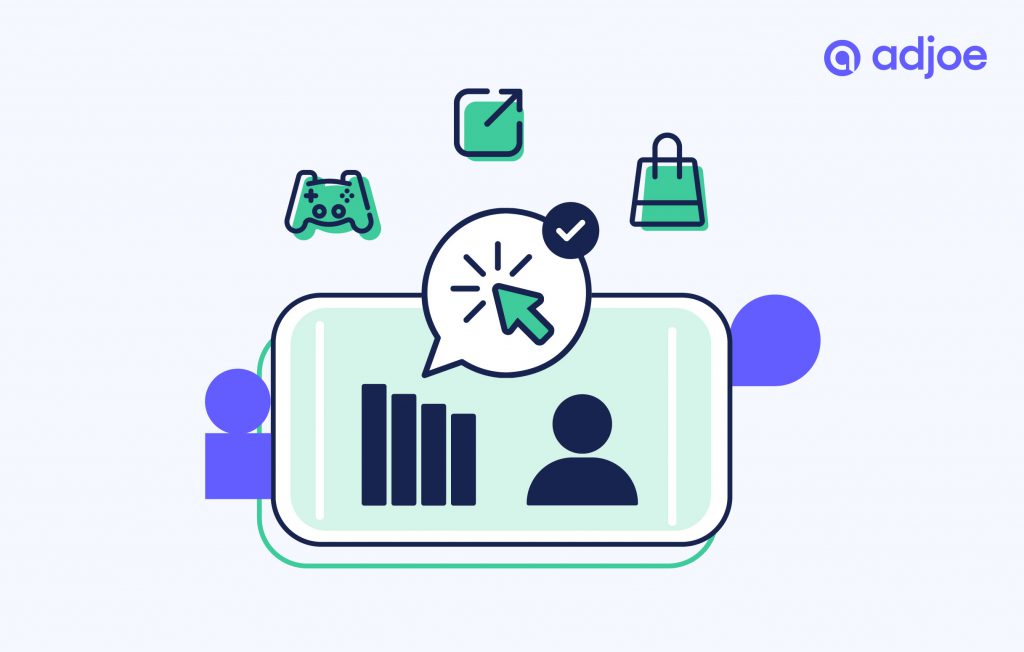Page Contents
Introduction
AppsFlyer offers a wide variety of In-App events to help businesses track the most important metrics regarding their users. These events are a great way to see how users are interacting with your app at a granular level.
This blog will list the different events Appsflyer offers as a mobile attribution and marketing analytics platform. and what it can do for your business. But first, let’s break these terms to understand everything holistically.
What are In-App Events?

In-app events are user actions that occur within a mobile application. These actions can include anything from tapping on a button to completing a purchase or viewing a video. By tracking these events, mobile app developers can gain insights into how users are interacting with their app, identify areas for improvement, and measure the success of their marketing campaigns.
In-app events can be used to track a wide range of user behaviour, including app installs, the app opens, in-app purchases, user registrations, content views, ad clicks, and more. Each event can be defined based on specific user actions, such as adding an item to a cart or sharing content on social media.
In-app events can be tracked using mobile analytics tools like AppsFlyer, Firebase, and Mixpanel. These tools provide developers with valuable insights into user behaviour, including user acquisition sources, user retention rates, and user engagement metrics. By tracking and analyzing in-app events, mobile app developers can make informed decisions that improve the app’s user experience, increase user engagement, and drive business growth.
We will particularly be learning about AppsFlyer and its relationship with In-App events in the subsequent sections.
What is AppsFlyer?
AppsFlyer is a mobile attribution and marketing analytics platform that helps mobile app developers and marketers measure and optimize their mobile app campaigns. The platform provides insights into user acquisition, engagement, and retention, enabling mobile app developers and marketers to make data-driven decisions that drive business growth.
AppsFlyer’s core functionality is mobile attribution, which allows developers to track the source of their app installs and measure the effectiveness of their user acquisition campaigns. The platform supports integrations with over 7,000 mobile ad networks, providing developers with a comprehensive view of their user acquisition funnel.
Overall, AppsFlyer is a powerful tool for mobile app developers and marketers who want to measure and optimize their mobile app campaigns. The platform provides comprehensive insights into user acquisition, engagement, and retention, enabling developers and marketers to make informed decisions that drive business growth.
Types of AppsFlyer In-App Events
AppsFlyer provides a range of standard in-app events that mobile app developers can use to track user behaviour within their apps. These events are designed to help developers gain insights into how users are interacting with their app and measure the effectiveness of their marketing campaigns. Here are some of the most common types of AppsFlyer in-app events:
- Standard In-App Events
AppsFlyer provides a set of standard in-app events that developers can use to track user behaviour and measure app performance. These standard events include app launches, registrations, purchases, and in-app ads. By tracking these events, developers can gain insights into how users interact with their apps and identify areas for optimization.
- Custom In-App Events
In addition to standard events, Appsflyer also allows developers to create custom in-app events based on their unique business needs. Custom events can be defined based on specific user actions, such as sharing content, completing surveys, or adding items to a wishlist. By tracking these custom events, developers can gain a deeper understanding of user behavior and tailor their app experiences to meet their users’ needs.
- Revenue In-App Events
Revenue events are another type of in-app event that AppsFlyer supports. These events track the amount of revenue generated from in-app purchases or subscriptions. By tracking revenue events, developers can measure the effectiveness of their monetization strategies and identify areas for improvement.
- Deep Linking In-App Events
Deep linking events are used to track user engagement with deep links. Deep links are URLs that link to specific content within an app, such as a specific product or page. By tracking deep-linking events, developers can measure the effectiveness of their deep-linking strategies and identify areas for optimization.
- Attribution In-App Events
Attribution events track user acquisition sources, such as paid advertising campaigns or organic searches. By tracking attribution events, developers can measure the effectiveness of their marketing campaigns and optimize their user acquisition strategies.
- Retention In-App Events
Retention events are used to track user engagement over time. These events track how often users return to the app, how long they stay in the app, and other metrics related to user retention. By tracking retention events, developers can identify areas where users are dropping off and implement strategies to improve user retention.
- Error In-App Events
Error events track app errors, such as crashes or other technical issues. By tracking error events, developers can identify and fix technical issues that may be impacting the user experience and causing users to abandon the app.
- Sharing Event
This event is triggered when a user shares content from within the app, such as a social media post or a referral link. It helps developers track user engagement and identify potential viral marketing opportunities.
In addition to these standard in-app events, AppsFlyer also allows mobile app developers to create custom events based on their unique business needs. This allows developers to track specific user actions and gain insights into how users are interacting with their app.
Overall, AppsFlyer in-app events provide a powerful tool for mobile app developers to measure app performance, optimize user experiences, and maximize their mobile marketing ROI.
Conclusion
In conclusion, Appsflyer provides a range of in-app events that app developers can use to track user behavior, measure app performance, and optimize their app experiences. These events include standard events, custom events, revenue events, deep linking events, attribution events, retention events, and error events. By tracking these events, developers can gain deeper insights into user behavior, identify areas for optimization, and improve the overall user experience.
